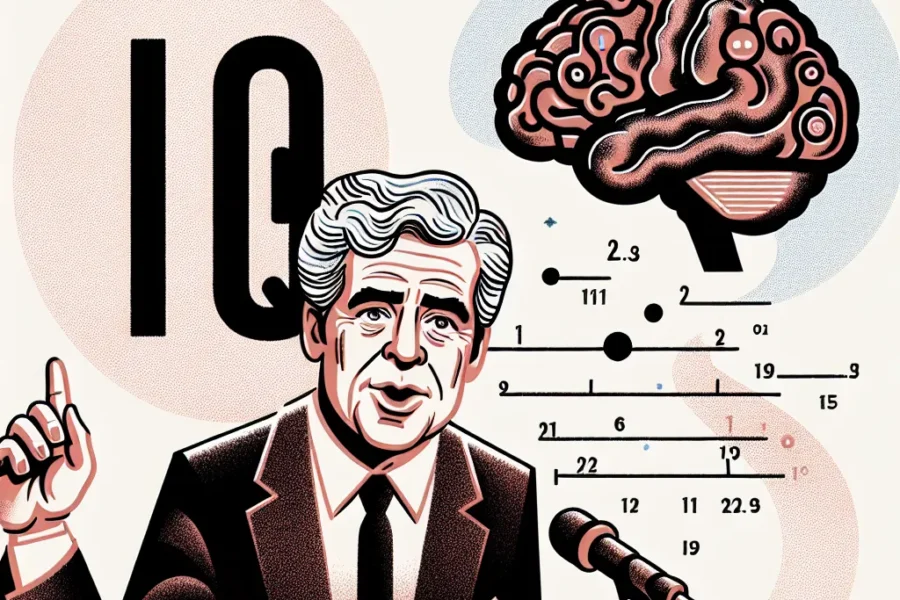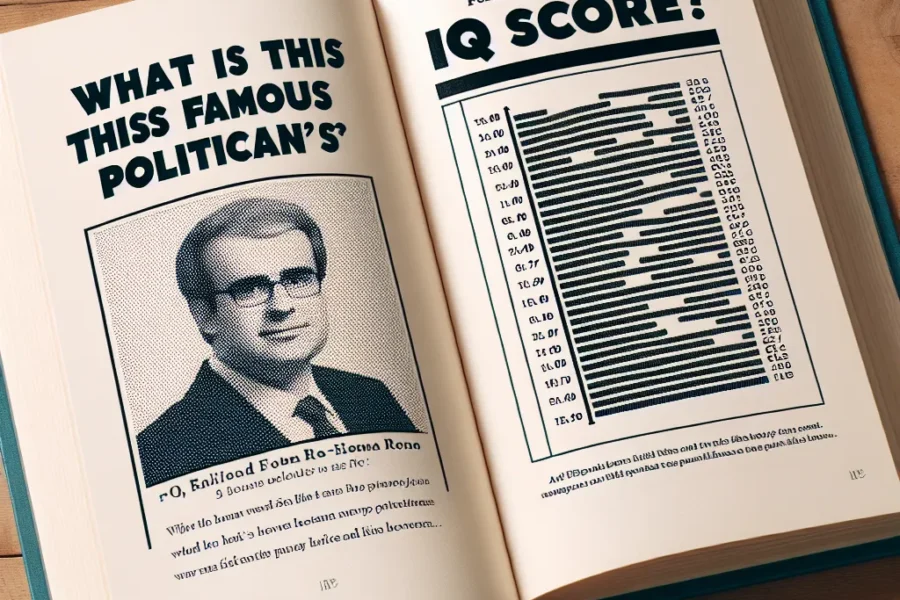When it comes to discussing the intelligence of former U.S. presidents, few topics spur as much curiosity and debate as the IQ scores attributed to these influential figures. Among the subjects of this debate is George W. Bush, the 43rd President of the United States. Known for his two-term presidency from 2001 to 2009, Bush’s tenure was marked by significant events such as the September 11 attacks and the subsequent War on Terror. But even more than his decisions and policies, public interest has often veered toward understanding his intellectual capabilities. Specifically, many people wonder about George W. Bush’s IQ score and what it might reveal about his mental acuity.
If you are looking for legitimate IQ Tests which pass the entry bar for Mensa, see our IQ Tests.
First and foremost, it is crucial to understand what an IQ (Intelligence Quotient) score actually represents. An IQ score is a standardized measure of human intelligence, derived from a variety of tests designed to assess different cognitive abilities. These tests often evaluate skills such as logical reasoning, mathematical ability, spatial recognition, and language comprehension. The average IQ score is set at 100, with most people scoring between 85 and 115. Scores above 130 are typically considered to represent ‘gifted’ individuals, while scores below 70 might indicate some level of cognitive impairment.
The question of George W. Bush’s IQ has been a subject of speculation and debate for years. Unlike some other presidents or public figures whose IQ scores have been disclosed or approximated through various credible sources, Bush’s IQ has never been officially released. This ambiguity has led to widespread speculation, with estimates ranging from the low end to figures exceeding 120.
Understanding this debate requires some historical context. It is worth noting that while in office, Bush was often the target of unflattering media portrayals. Comedians and political pundits alike frequently depicted him as less intellectually capable than his contemporaries. For instance, his frequent verbal missteps, known colloquially as “Bushisms,” only fueled this image, despite the fact that slips of the tongue are relatively common and not necessarily indicative of one’s overall intelligence.
During Bush’s time at Yale University, he was, by his own admission, an average student. He earned a Bachelor of Arts degree in history, and later, an MBA from Harvard Business School. While grades and academic performances can be indicative of certain types of intelligence, they are not definitive measures of one’s overall intellectual capacity. For example, many people point out that several of the most successful and inventive minds in history either performed poorly in academic settings or dropped out altogether.
One of the most frequently cited sources on Bush’s IQ is the book “The Bell Curve” by Charles Murray and Richard J. Herrnstein. In this controversial book, the authors estimated the IQs of various public figures based on educational attainment and occupational achievement. They posited that Bush had an IQ somewhere around 120. While it’s essential to approach such estimates with caution, especially given the contentious nature of the book and its methods, it offers one perspective on Bush’s intellectual capabilities.
However, there’s another aspect to consider: intelligence is multi-faceted and cannot be wholly encapsulated by a single number. Emotional intelligence, creativity, practical problem-solving, and the ability to lead and inspire are all critical aspects that traditional IQ tests might not capture. Bush’s ability to connect with people, his leadership qualities during crises like the aftermath of the 9/11 attacks, and his political strategy cannot be overlooked when assessing his overall capabilities.
Furthermore, it’s vital to compare Bush’s IQ estimates within the broader context of U.S. presidents. Research conducted by Dean Simonton, a professor of psychology, estimated the IQs of all U.S. presidents up to Bill Clinton, placing the average at around 130. Assuming Bush’s IQ estimate of around 120 is accurate, it would place him slightly below the presidential average but nonetheless within a range that denotes competent intellectual functioning.
Another angle worth exploring is how IQ scores and intelligence are perceived by the general public versus experts. The public often leans toward a one-dimensional understanding of intelligence, prioritizing high test scores and academic accolades. Meanwhile, experts understand that intelligence is a complex, multi-dimensional construct that manifests in various ways. Bush’s tenure saw significant international and domestic challenges, and successfully navigating these—regardless of public opinion—suggests a certain level of critical thinking and adaptability.
It’s also critical to consider the social and environmental factors that shape public figures’ perceptions. The social psychologist Claude Steele’s concept of “stereotype threat” describes how being aware of a negative stereotype about one’s group can adversely affect performance. Bush’s public missteps and the heightened scrutiny he faced might have resulted in an unfairly skewed public perception of his intelligence.
An important element that often goes unmentioned in these debates is the political context. In a highly polarized environment, public figures are often subject to exaggerated scrutiny and criticism from their opponents. This phenomenon applies not only to Bush but to many other political figures who have been either overly criticized or unduly praised based on partisan leanings.
Moreover, there are variations in understanding and interpreting IQ scores themselves. The different types of IQ tests such as the Wechsler Adult Intelligence Scale (WAIS), Stanford-Binet, and others can yield varying score ranges based on their frameworks and methodologies. Without knowing exactly which test might have been used to estimate Bush’s IQ, it’s important to take such figures with a grain of salt.
In conclusion, the question of George W. Bush’s IQ score remains an intriguing but ultimately indeterminate query. Available estimates provide a range that places him within the average to above-average intelligence bracket, yet these figures should not be viewed in isolation. Intelligence is multi-dimensional and cannot be encapsulated by a single number or standardized test. Bush’s leadership during critical periods, his academic background, and his ability to connect with and inspire many Americans provide multiple lenses through which to view his intellectual capacity. Whether or not one agrees with his policies or personal style, reducing his entire persona to a speculative IQ score risks oversimplifying the complexities inherent in assessing intelligence.



Leave a Comment